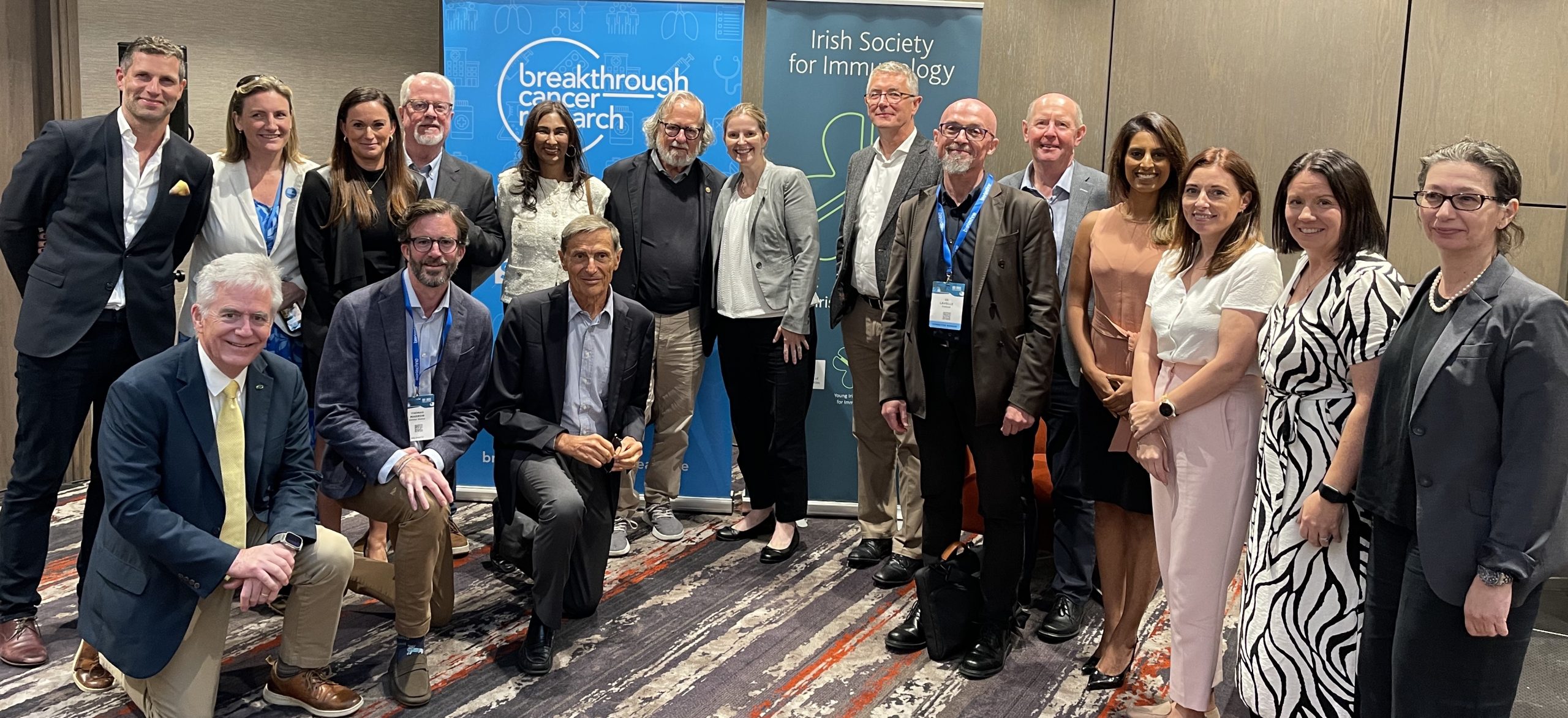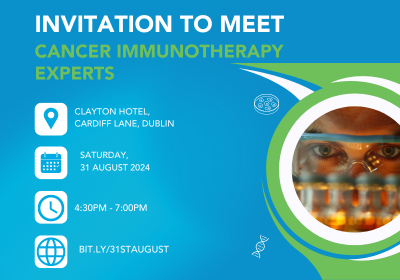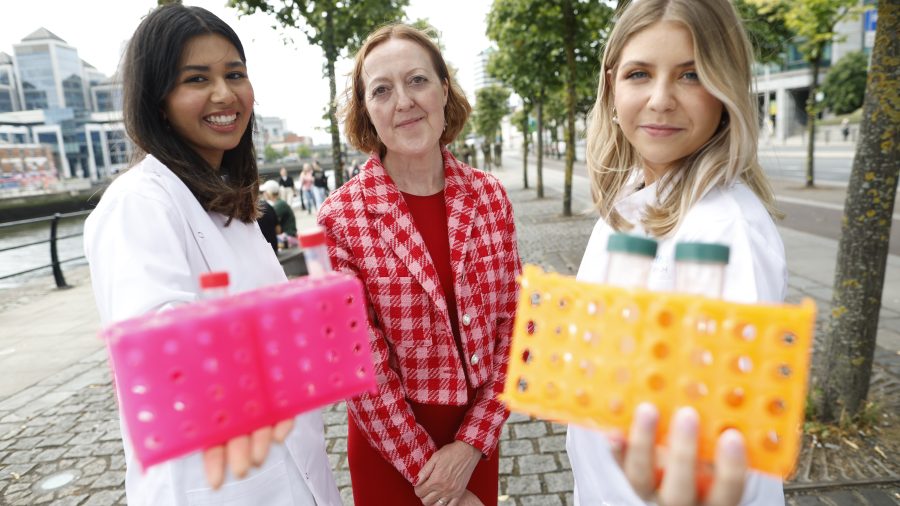Can Your Immune System Help Treat Cancer?
Local and International Experts Discuss the Most Significant Cancer Breakthrough in Decades – Cancer Immunotherapies
Breakthrough Cancer Research, in partnership with the Irish Society of Immunology, led by Prof. Joanne Lysaght and Dr. Aideen Ryan, invited the public to a very special event on 31st August at the Clayton Hotel, Cardiff Lane, Dublin City. The event featured panel interviews and an open Q&A session with world-renowned scientists, physicians and researchers, focusing on the role of immunology in cancer treatment, a field that has shown immense promise over the past two decades. Participants included Nobel Prize winner Dr. James Allison whose groundbreaking work has revolutionised our understanding of immunology and its applications in cancer therapy. The event was moderated by Jonathan McCrea (Newstalk/Whipsmart Media).
Immunology has emerged as one of the most promising areas in cancer research, offering new frontiers such as CAR-T cell therapy and immune checkpoint inhibitors. At the public event in the Clayton Hotel, Pat Byrne, the second person in Ireland to receive CAR-T treatment, shared his personal experience followed by discussions from distinguished panellists:
- James P. Allison – Anderson Cancer Center, Houston, Texas.
- Padmanee Sharma – MD Anderson Cancer Center, Houston, Texas.
- Jennifer Guerriero – Brigham and Women’s Hospital, Boston, Massachusetts.
- Alberto Mantovani – Humanitas University, Milan, Italy.
- Bernard Fox – Earle A. Chiles Research Institute, Providence Cancer Center, Portland, Oregon.
- Thomas Marron – Mount Sinai, New York.
- Kristin Anderson – University of Virginia School of Medicine, Charlottesville, Virginia.
- Professor Owen Smith – Trinity College Dublin.
- Professor Larry Bacon – National Adult CAR-T therapy programme, St. James Hospital, Dublin.
- Professor Jarushka Naidoo – Royal College of Surgeons in Ireland.
- Professor Nicki Panoskaltsis – Trinity College Dublin.
When immunotherapy was first introduced, it generated tremendous excitement for its potential to transform cancer treatment. By harnessing the body’s own immune system to treat cancer, it offers a targeted and potentially less toxic alternative to traditional therapies. Modern cancer immunotherapies are focused on harnessing cells of the immune system to eliminate cancer cells. These are prized approaches as the immune system can be used to recognise cancer cells wherever they are in the body, even if they have metastasised (spread) and the response can be long-lasting. Cancer immunotherapies offered to patients today typically involve stimulating and boosting T-cells, an adaptive response where the immune system learns to recognise and kill the target. However, despite great success for some patients with curative outcomes, it is not yet working for all patients and cancers.
Current research is focused on unlocking this powerful treatment for more people or stimulating other cells of the immune system to attack and eliminate the cancer. These groundbreaking approaches were discussed in detail at ‘New Frontiers in Cancer Immunotherapy’ on September 1st. Delegates at that panel event explored the future of cancer treatment and the role immunology will play for people with cancer around the world.
Donate Now













 Contact
Contact